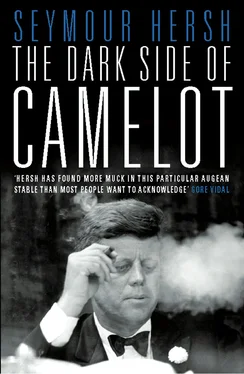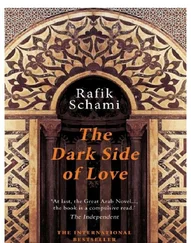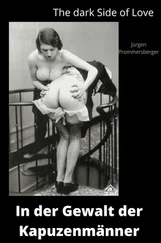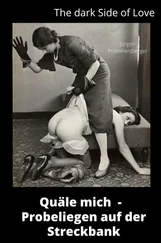It is impossible to assess what was in Kennedy’s mind when he chose to casually brief American correspondents about the plot—and to provide the names of those involved. His blabbing can be seen most innocently as the actions of an ambitious man, eager to seem an insider, who would let nothing block his efforts to ingratiate himself with the press. But there is a far darker interpretation. The British Foreign Office’s Kennediana files, which were made public after the war, show that Kennedy was opposed to any policy based on the assassination of Adolf Hitler, in fear that Hitler’s death would leave Soviet communism unchecked. In late September of 1939, three weeks after Hitler’s invasion of Poland, Kennedy directly raised his concerns in a conference with Lord Halifax, the British foreign secretary. Halifax quoted Kennedy as stating that he
himself was disposed to deprecate perpetual reference to the personal elimination of Hitler. How could we be sure that it would not have precisely the opposite effect on German feeling? … According to Mr. Kennedy, United States opinion thought that Russia was a much greater potential disturber of world peace through Communist doctrine than was Germany. He thought that American opinion would inevitably be greatly disturbed if and when it came to think that the result of the present struggle was a greater extension of bolshevism in Europe.… He appreciated the strength of British opinion about Hitler and the Nazi system, but, if the end of it all was to be universal bankruptcy, the outlook was very black.
Halifax, according to his Foreign Office note, did not respond to Kennedy’s comment about Hitler’s assassination. *
During his years in London, Joe Kennedy compounded his political and personal problems with FDR and his senior advisers through his overriding presidential ambition and his clumsy attempts to mask it. “He thought he was about the most qualified individual on earth to be president,” Klemmer said in his 1992 television interview. “He had supreme self-confidence, of course, as everybody knows, and he thought the monetary system in the United States needed revising and … one of his ambitions was to revise the whole monetary system.” Kennedy spent much time masterminding a campaign—transparent to the men in the White House—for the Democratic presidential nomination in 1940. The Kennedy claque of newspaper sycophants, headed by Arthur Krock, repeatedly planted stories about a possible Kennedy candidacy. Krock’s columns in the New York Times made the men in the White House gag. In a diary entry dated May 22, 1939, Treasury Secretary Henry Morgenthau described how Thomas G. Corcoran, one of Roosevelt’s senior political advisers, “got really violent” while discussing Kennedy and Krock. “He said that Krock was running a campaign to put Joe Kennedy over for President.” * Krock was further described as “the number one Poison at the White House.” Harold Ickes had earlier expressed concern about Kennedy’s qualifications, and his ambitions, in his diary: “At a time when we should be sending the best that we have to Great Britain, we have not done so. We have sent a rich man, untrained in diplomacy, unlearned in history and politics, who is a great publicity hound and who is apparently ambitious to be the first Catholic President of the United States.”
Roosevelt, who had every intention of running for an unprecedented third term in 1940, was just as skilled as Kennedy at planting stories. Walter Trohan, the crusty bureau chief of the Chicago Tribune , who was known to be close to Kennedy, recalled being summoned to the White House by Steve Early, Roosevelt’s press secretary, and given a challenge. “‘You’re a friend of Joe Kennedy’s, aren’t you?’ I said, ‘Yes, I like Joe.’ He said, ‘You wouldn’t criticize him?’ I said, ‘Oh yes, I would. I’d criticize any New Dealer. What’s Joe done?’” Early then gave Trohan copies of two Kennedy letters. The first, Trohan told me in a 1997 interview for this book, was addressed to Arthur Krock and said, “We ought not to get into the war.” The second, sent to the State Department, “was extremely pro-British and suggested getting along with Britain.” Trohan wrote an account of Kennedy’s gamesmanship for the Tribune . A few weeks later, Kennedy was called to Washington for a meeting. “He ran into me,” Trohan said, “and drew his hand across his throat. Joe knew I got the information from the White House.” The ambassador, Trohan added, “forgave me in the long run.”
FDR reacted to the political and diplomatic dangers posed by Kennedy by keeping him in London and increasingly isolating him from the American public and from all important policy decisions. The president sent a series of personal representatives to Great Britain in mid-1940, after Hitler invaded Denmark and Norway and began his drive into the Netherlands and Belgium toward France, and instructed them to make on-the-scene surveys of British morale and military readiness. Men such as Colonel William J. “Wild Bill” Donovan, Colonel Carl Spaatz, General George Strong, and Admiral Robert L. Ghormley arrived in London, did their business, and returned to Washington—with little or no contact with the embassy, to Kennedy’s embarrassment and rage. By that time, too, much more of America’s business with England was being handled directly by the British Foreign Ministry, headed by Lord Halifax, including a highly sensitive proposal to swap long-term American leases on British overseas bases for fifty much-needed American destroyers. With war being waged throughout Europe, American diplomacy in Europe was made the primary responsibility of Ambassador William C. Bullitt in Paris, a Roosevelt confidant who shared FDR’s contempt for Nazi Germany. *
Kennedy understood that Roosevelt, despite his many public statements to the contrary, was intent on bringing America into the war. The president had begun an intermittent secret correspondence with Winston Churchill in the fall of 1939, nine months before Churchill was named prime minister. The two men were careful, even in their encrypted communications, not to talk openly about taking on Hitler together, but they did agree to work out procedures for sharing, among other intelligence, the location of German submarines and surface ships. Such exchanges would have provoked, at the least, an outcry among the isolationists in Congress and imperiled Roosevelt’s reelection prospects. No copies of the sensitive communications were to be made available to the British Foreign Office; the two leaders communicated via the code room in the American Embassy—Joe Kennedy’s embassy.
* Kennedy remained insensitive, at best, about the Jewish issue through the later war years, when the existence of concentration camps was widely known. In a May 1944 interview with an old friend, Joe Dinneen of the Boston Globe , Kennedy acknowledged, when questioned about his alleged anti-Semitism: “It is true that I have a low opinion of some Jews in public office and in private life. That does not mean that I hate all Jews; that I believe they should be wiped off the face of the earth.… Other races have their own problems to solve. They’re glad to give the Jews a lift and help them along the way toward tolerance, but they’re not going to drop everything and solve the problems of the Jews for them. Jews who take an unfair advantage of the fact that theirs is a persecuted race do not help much.… Publicizing unjust attacks upon the Jews may help to cure the injustice, but continually publicizing the whole problem only serves to keep it alive in the public mind.” Kennedy’s discussion of anti-Semitism was withheld from publication at the time by the editors of the Globe , but in 1959 Dinneen sought to include a portion of it in a generally flattering precampaign family biography. Advance galleys of the Dinneen book, entitled The Kennedy Family , had been given to Jack Kennedy, who understood how inflammatory his father’s comments would be and had no difficulty in successfully urging Dinneen to delete the offending paragraphs. The incident is described in Richard Whalen’s biography of Joe Kennedy.
Читать дальше












